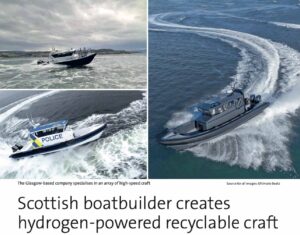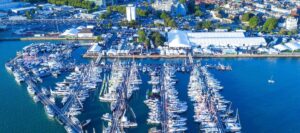The environmental impact of sunken fiberglass boats is severe and long-lasting, posing significant risks to marine ecosystems. These boats can disrupt natural water flow and sediment movement, creating low oxygen zones harmful to marine life. Additionally, sunken vessels often release harmful substances like fuels and oils, leading to water and sediment contamination. This contamination can affect marine life health, disrupt the food chain, and potentially enter the human food chain.
Fiberglass boats also leach toxic chemicals such as volatile organic compounds (VOCs) and heavy metals like lead, cadmium, and mercury from their resins and materials. These substances can damage marine life’s liver, nervous, and reproductive systems and bioaccumulate in the food chain, posing risks to human health. Furthermore, phthalates from fiberglass boats can disrupt the endocrine systems of marine species, causing developmental and reproductive issues.
As fiberglass degrades, it contributes to microplastic pollution in the ocean, with particles ingested by sea life, leading to various health problems. Since fiberglass is synthetic and non-biodegradable, the environmental hazards it poses can persist for centuries.
To mitigate these impacts, it is crucial to properly dispose of or recycle fiberglass boats. Ensuring responsible disposal of pollutants, avoiding sinking boats in sensitive habitats, and recycling glass fiber materials can significantly reduce environmental damage and help preserve marine biodiversity.






